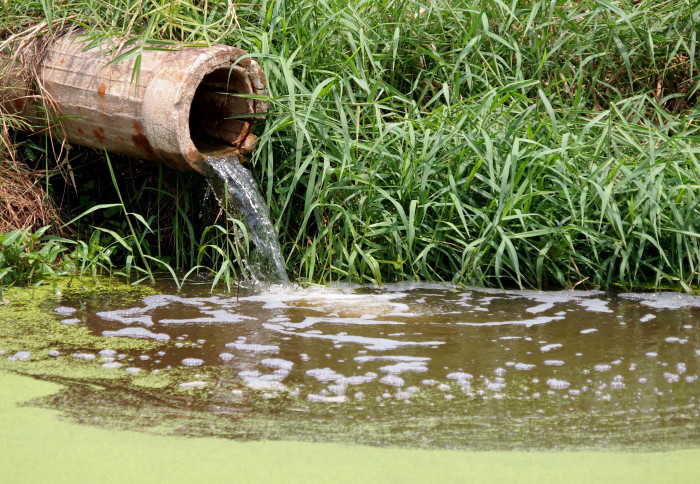Mapping coronavirus in sewage could reveal disease hotspots

A new project to model the SARS-CoV-2 virus in raw sewage could help efforts to map the prevalence of COVID-19 in humans and potential animal hosts.
The project will also sample the virus in nearby freshwater ecosystems to assess the potential for the disease to be transmitted via raw sewage, which could become increasingly important during the winter as drains overflow in storms.
There is growing concern about the risks of faecal-oral transmission to humans and/or wildlife via sewage outflows and overspill Professor Vincent Savolainen
COVID-19 is typically characterised by respiratory symptoms such as persistent cough, but fragments of the virus are also detectable in the faeces of some patients for prolonged periods. This provides the potential to monitor the prevalence of COVID-19 using sewage samples, but could also be a route for transmission of the disease.
Professor Vincent Savolainen and colleagues are planning to work with the University of Nottingham and various companies to model and sample sewage and feed into efforts to provide community-level estimates of the disease prevalence. Together with collaborators in universities and research centres across the UK, the team will also develop models to provide an early detection system for low, medium, and high infection levels in different communities.
Additionally, the team will sample rivers and animal faeces in the environment for the presence of the coronavirus, to assess whether and how sewage could be a source of new infections, either directly or through animal hosts, such as rodents and bats.
Sewage overspill
The work is funded by Imperial’s COVID-19 Response Fund, which is backed by donors, and the Natural Environment Research Council (NERC).
Professor Savolainen, from the Department of Life Sciences at Imperial, said: “Because live viruses have been detected in the stools of patients affected by COVID-19, there is growing concern about the risks of faecal-oral transmission to humans and/or wildlife – where the virus first originated – via sewage outflows and overspill.”
Not all sewage reaches sewage treatment plants, particularly during storms, where overspill from drains can leach raw sewage into the environment. For example, 450,000 tonnes of raw sewage entered the Thames via this route in 2011, and overspill incidents occur about 60 times a year in the Thames Valley alone.
The team plan to sample these events along the Thames and other routes where sewage overspill or outflow reaches the environment untreated. This will provide a measure of the risk of ‘live’ viral particles being in the environment downstream from sewage outflows, which is crucial for avoiding any disease transmission from activities like swimming or fishing in the river.
Winter resurgence?
Sewage overspills from drains are more likely to occur during the winter storm season in the UK, when heavy rainfall overwhelms drains. Researchers think this may coincide with a resurgence in the coronavirus responsible for COVID-19, as many other coronaviruses fare better in cooler and wetter conditions.
This assumption will be tested by another project led by Imperial researchers and awarded NERC funding. Dr Will Pearse and colleagues in the Department of Life Sciences at Imperial, plus members of the COVID-19 Response Team, will assess the response of the novel coronavirus to temperature and humidity, which are indicators of the virus’ seasonality.
Together, these two projects have received over £1 million in funding. They will help identify infection and potential infection hotspots, allowing authorities to provide more targeted intervention and management measures, such as social distancing and local restrictions on activities.
Article supporters
Article text (excluding photos or graphics) © Imperial College London.
Photos and graphics subject to third party copyright used with permission or © Imperial College London.
Reporter
Hayley Dunning
Communications Division